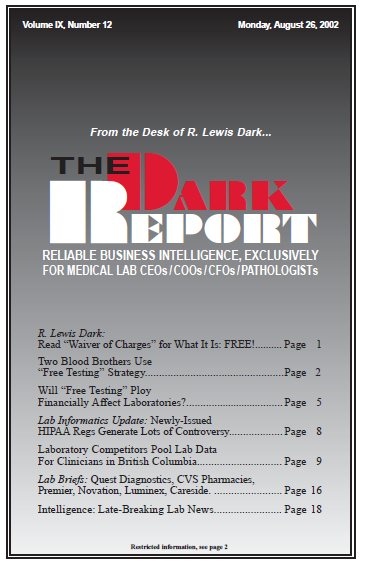QUEST DOES DEAL WITH CVS DRUGSTORES FOR LAB TESTING PATHOLOGISTS CONCERNED about pharmacists moving into the lab testing arena should closely watch the newly-announced relationship between Quest Diagnostics Incorporated and CVS Corporation. Starting this month, CVS pharmacies in Columbus, Ohio and Tampa/St. Petersburg, Florida now sell lab tests. Participating pharmacies have a card display for […]
To access this post, you must purchase The Dark Report.


